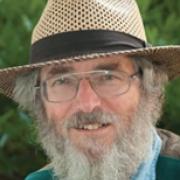Healthy Cities: Past, Present and Future
Trevor Hancock
University of Victoria
Abstract
The health of urban populations is to a large extent a function of the physical and social urban environment in which they live; to be healthy, people need healthy cities. This raises two simple but profound questions: What is a healthy city, and how do we get one? In this presentation I will begin by discussing the concept of a healthy city as it has evolved over the past 150 years or so. I will then discuss my own involvement in developing and implementing this concept in Europe and North America in the past 30 years, and some of the insights I have gained. I will end by discussing what I see as the major challenges we face if we are to create healthier cities in the 21st century, both in Canada (and especially here in Victoria) and globally.
Dr. Trevor Hancock teaches that cities wanting to improve the health of their citizens need to pay attention to both their physical and their social environments. Think increasing the amount of green space downtown or introducing community programs that connect citizens with their cities. Over the past 30 years as an internationally recognized health promotion leader, Dr. Hancock has helped to put health on the agenda of thousands of cities and towns around the world. He has had a long-standing interest in the relationship between human and environmental health and is one of the founders of the global Healthy Cities and Communities movement. Dr. Hancock teaches in the School of Public Health and Social Policy at the University of Victoria, where his graduate courses connect students to real on the ground problems facing society. The challenge now is to increase awareness. As co-chair of a working group studying human and ecosystem health for the Canadian Public Health Association (CPHA), he is searching for new, creative ways to communicate his message. In Dr. Hancock's words: "We want the three minute viral video, not the academic paper." [Source:uvic.ca/research]

